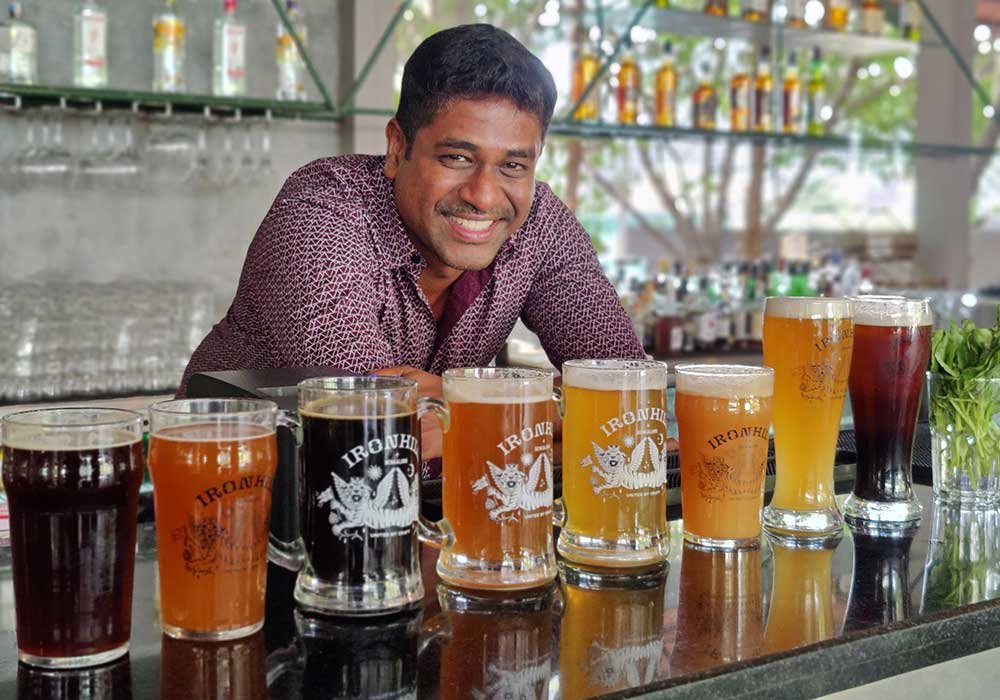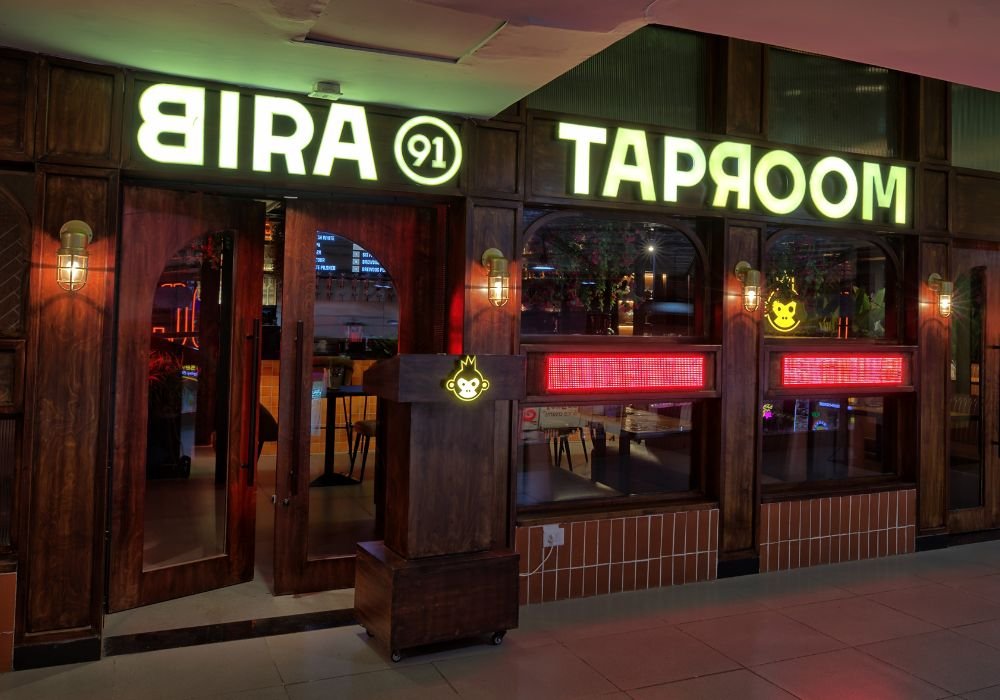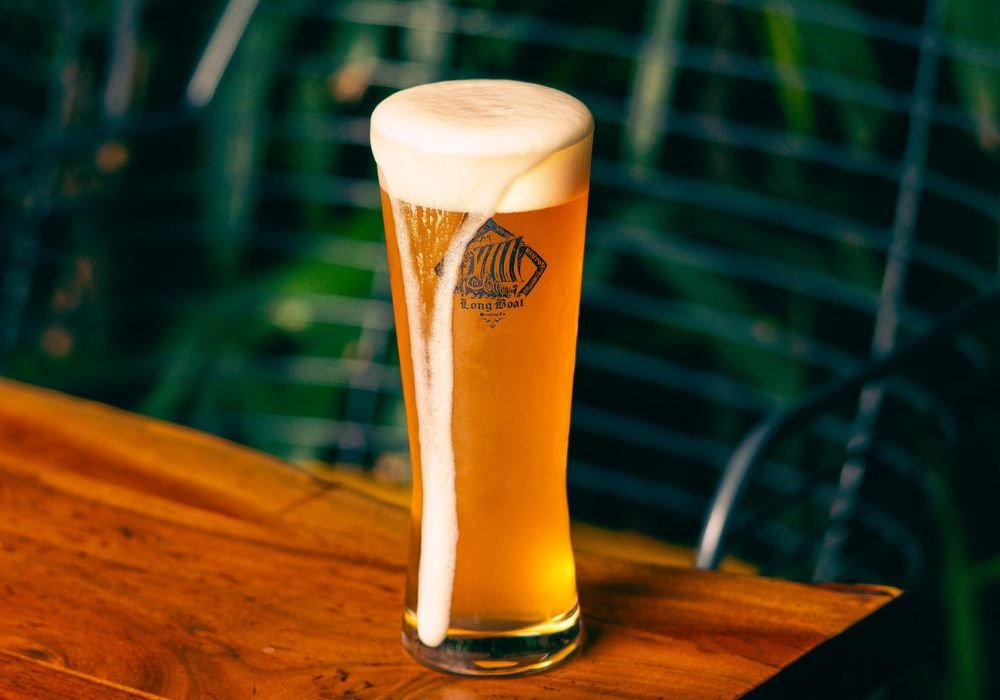“The Craft Beer Market Has Tremendous Room For Expansion In India,” Says Teja Chekuri, Managing Partner at Ironhill India

Teja Chekuri is a global restauranteur who has established unique restaurant chains all over the world. Teja worked in different startups and IT organisations after earning his MS in Electrical and Electronics Engineering from Gannon University. He began his entrepreneurial experience in 2006 as President of technoSecure, which was later bought by another company. Soon after, in 2010, he founded Vertical Focus Inc, which is currently in operation in the United States. But he kept returning to food, his first love. He co-founded the Godavari Group of Restaurants in the United States and continued to explore the sector.
With the launch of Prost in 2012, he pioneered the concept of craft beer in India. While it is still navigating its path to success, Teja wants to explore more local flavours and create unique mixes using Indian spices that can be added to the brews to provide an exciting experience for beer aficionados. That’s how Ironhill India came about. He is currently the Managing Partner at Ironhill India and holds several board-level positions in different companies. Teja has also been accepted into the Forbes Business Council, the foremost growth and networking organization for successful business owners and leaders worldwide.
In his conversation with Brewer World, Teja highlights his vision behind the franchise business, the pros and cons of owning a franchise compared to starting your own business from scratch. He also talks about the future of breweries opening in tier 2 and tier 3 cities and the current market trends.
Hi Teja, Can you tell us which franchise business model you operate?
We operate on the franchise business model that seeks to create fantastic craft brewery spaces across Tier 2 & 3 cities.
What is your vision behind it?
We aspire to be a market leader in the craft brewery industry and expand to 10 operational locations by 2023. The idea is to create breweries in offbeat and unexpected cities, giving them a whole new experience. With Ironhill, we started focusing on Tier 2 cities and started our journey from there. We invested time and energy into research, and two very prominent findings resonated across all the emerging markets: One – the spending power in these cities is considerable; Second – No one was catering to the mid-segment market; Third – Most were well travelled and were aware of craft beer along with what constituted as a good brew.
We started in Vizag and then rolled into Vijayawada with the second. In both these cities, we earned the first-mover advantage and are still the only players in town. Today we are present in cities like Hyderabad, Bangalore, Vijayawada, Nellore, Rajahmundry and Visakhapatnam. All locations in each of these cities are also offbeat and had a glaring gap that needed to be addressed.
What factors do you consider when selecting a partner for your franchise business?
Three factors determine our choice of a franchise partner:
Operational knowledge: Basic knowledge of how to operate an F&B outlet.
Business acumen: Smart ideas on how to balance profitability without compromising on quality experiences.
Love for craft brews: If you love the product you sell, you tend to be more passionate.

How many franchisees across India are you planning to distribute? Are there any plans to expand internationally?
After strengthening our roots in each of the 6 cities we are already present in, we are looking at other cities like Bhubaneswar, Pune and other cities in Rajasthan to expand the Ironhill brand this year. We will be primarily looking at franchisees. Not a lot of players in Orissa, Rajasthan, and Pune give a route to enter the tap route in Mumbai, which will be our next big play. We will also look at various locations in Bangalore.
What do you consider to be the advantages and disadvantages of owning a franchise business compared to starting your own business from scratch?
The distinct advantage of owning a franchise business is that all the support is already provided for you. The operational, marketing, research, insight and sales support provided nationwide ensure they already have a great head start. A smart business owner has to run it effectively and make it profitable.
Owning a business is a tough sell, especially in the brewery business, as it requires significant investment along with all the pressures of marketing, operations, research, and sales. An advantage can be the thrill of creating a brand you are proud of. If you are able to capitalise on it, then you have a winner on your hands.
As an accepted member of the Forbes Business Council. What are your objectives and goals? How will it support the F&B sector?
The Forbes Business Council is a prestigious group to be a part of, and I am excited at the global opportunities for insight, mentorship and business that it will bring to the table.

What market trends do you currently see this year?
While the craft brew industry is exciting, these trends caught my attention:
Global Beer Hopping: Indian craft brewers have a great chance to show off their skills and knowledge by producing some of the world’s greatest beers now that more people than ever are travelling and learning about the world’s myriad cultures. This exposure to global cultures has a strong bearing on craft beer consumption with well-travelled knowledgeable customers.
What’s New? – Craft Malt in the limelight: Hops provide a little unusual spice to beers, but that flavour isn’t enough on its own. Therefore, many brewers are coming to appreciate the value of all raw materials, not just the traditional “green” ones. Brewers are devoting more time, effort, and attention to ingredients other than barley.
Tapping in – Taproom concept is the upcoming big thing: The ability to provide a variety of beers in one location is what will propel the Taproom idea in the Indian market. Having their kegs sold in several taprooms will help commercial craft brewers to reach a wider audience.
Taprooms have played a significant role in the sustained development of the craft beer market. The accessibility and friendliness of beer are greatly enhanced by the proliferation of taprooms and breweries. Taprooms are not only enjoyable for customers but also crucial for any small new brewery. For many years to come, they will be essential for promoting their businesses and drawing in new customers.
These taprooms may also be advantageous to breweries since they offer a practical setting for testing new beers. By doing this, businesses can test a new beer formula on a smaller scale before committing to a larger batch size and running the risk of sacrificing costly ingredients if the beer does not sell well.
What do you think is the future of breweries opening in tier 2 and tier 3 cities?
There are evolving niches within the segment, and while it is still at a nascent stage, the craft beer scene is primed for growth, and now, with craft breweries doing well in Tier-2 cities, the stage is set for exponential growth. Most customers in Tier 2 & 3 cities are open to experimentation and want the whole experience.
The majority of consumers prefer less hoppy or mildly sweet beers even now, and there is robust demand for fruit-based beers. However, we are also seeing a fair amount of beer awareness and efforts being taken to educate our consumers, so well-balanced beers will certainly be the central theme going forward.
What piece of advice would you like to offer to breweries in India who wish to offer out their franchise?
Starting a brewery requires overcoming several hurdles, but licensing and regulatory red tapes are the biggest ones, and there is no way around it except overcoming them. Have a solid plan, back yourself to deliver, and invest in your people. Success will follow.
Lastly, What kind of growth and expansion plans do you have for your franchise business in the future?
The craft beer market has tremendous room for expansion in India. Demographically, the surge in craft beer’s popularity is largely attributable to younger customers, who are adventurous and open to new experiences. The market is being dominated by this generation, which is not likely to alter its preferences or spending habits. Meanwhile, the older age group is becoming aware of and appreciating handcrafted brews.
Ironhill will capitalise on the opportunity. Our focus on the quality of the beers by not compromising on the raw materials and processes has already paid rich dividends. We intend to continue building on the same.
Future Plans: We plan to increase our footprint across other geographies. We are present in 6 cities in India and intend to increase the footprint within select cities and add a couple of tier 1 and tier 2 cities in the next financial year. We are currently inviting applications for franchisees from across the country.



